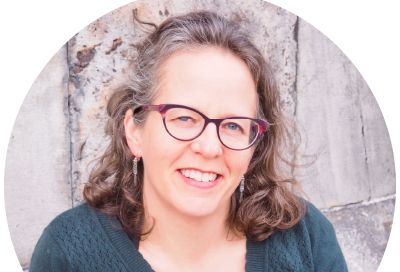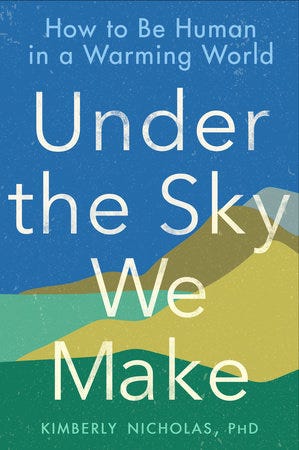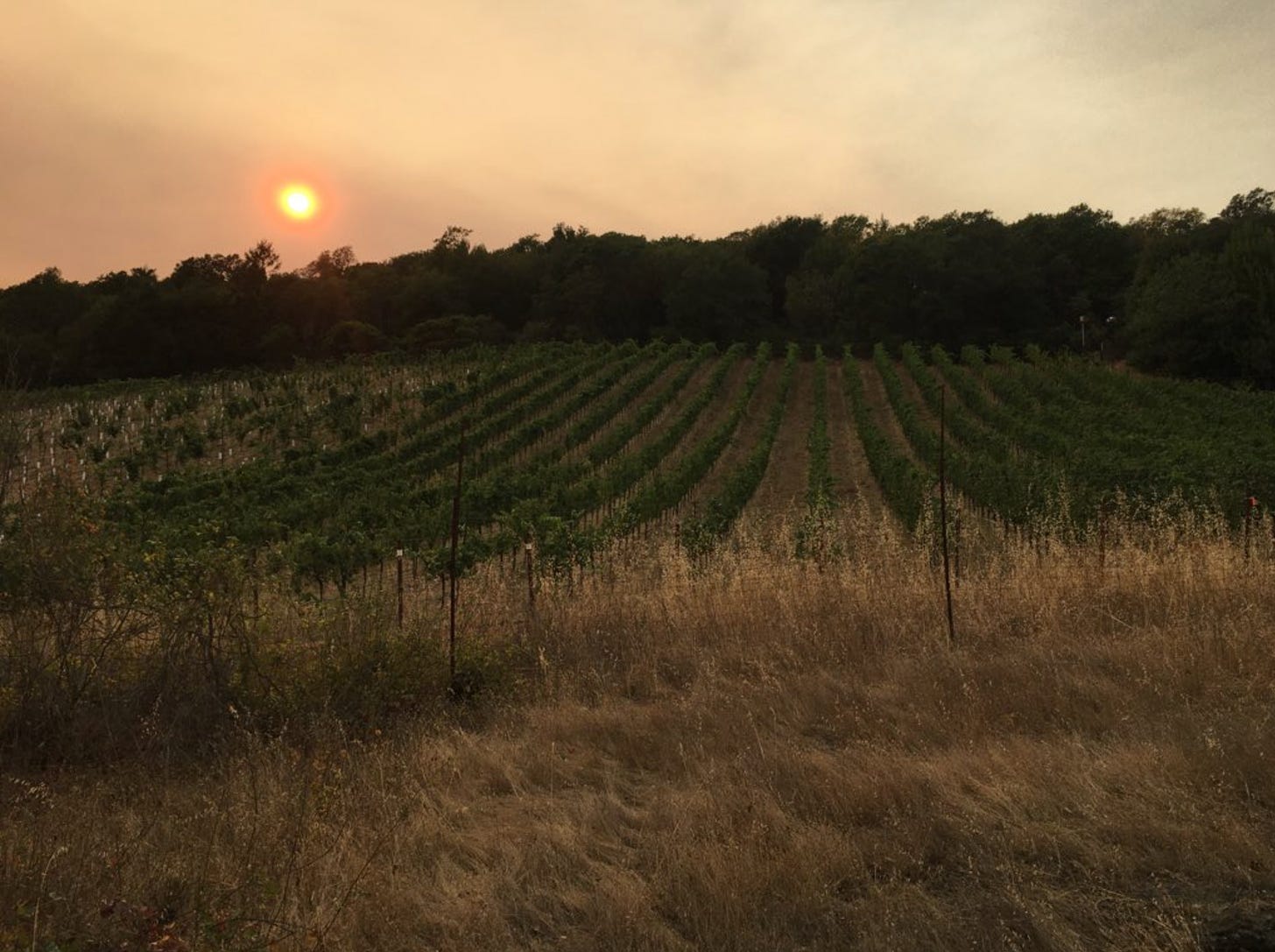When your day job is an existential battle for the future of humanity
A leading sustainability scientist highlights feelings as well as facts
Hey and welcome back to Gen Dread!
If you’re new to this corner of the internet, you can subscribe to biweekly emails from me about staying sane in the climate crisis by hitting that nice yellow button right there:
Up this week
Do you have a climate awakening story that has affected your relationships? If so, the much loved audio storytelling heavyweights at This American Life want to hear from you. Their story call out is included at the bottom of this post.
But first, I’m excited to share a Q & A I did recently with Dr. Kim Nicholas, sustainability scientist and professor at Lund University in Sweden. She is the author of Under the Sky We Make How to Be Human in a Warming World, which came out earlier this year. It’s a scientist’s passionate account of the predicament we’re in that refreshingly doesn’t sacrifice feelings in order to talk about the facts.
We chatted about the unique challenges many scientists face when it comes to acknowledging and integrating emotions into their approach to dealing with the climate crisis, why new norms are needed for addressing the psychological toll of doing environmental science today, and what support might look like.
By the way, Dr. Nicholas has a climate newsletter of her own called We Can Fix It - check it out! Hope you enjoy our discussion.
Q and A with Dr. Kim Nicholas
All photos courtesy of Kim Nicholas
Britt You've put forward in your book the truth of the grief that you feel and the loss that you experience by doing your job --- bearing witness to the destruction of ecosystems obviously comes with a huge psychic cost. Other scientists I’ve spoken with have talked about why it is so difficult to face the grief and break out of the rationalist boxes that they were trained to approach their data through in order to allow for that bigger human picture to emerge. I’m wondering, by talking about your emotions in your book, did you have a specific goal that you thought transparency around eco-emotions would help you achieve? Particularly as a scientist?
Kim: I guess I'm trying to speak to two audiences. I mean, the primary audience for my book is not scientists. I was writing with people like my friends in mind. Friends from college who are doctors and experts in marketing and tech and other things. People who care about the climate crisis and are increasingly alarmed and concerned, but as of a couple of years ago, were not up to speed with linking facts, feelings, and action. And I think for the average reader or non-scientist who reads the headlines, the feelings are really overwhelming and they don't have a framework for putting the facts in place.
I think the reverse is true for scientists. We have an abundance of facts but no framework for the feelings. Working both from some of my research and from my own experience, what I found was that you have to go through the feelings to put the facts into action. The facts don't just speak for themselves and automatically translate into behaviour change or larger social and policy changes. Feelings are the mechanism that makes that change happen, so trying to link those was part of my goal for those two audiences.
Britt: That makes sense. Personally, I'm of the opinion that emotionally wise methods for coping with eco-distress should be institutionalized. They should be professionalized. They should be part of the training and skill set that environmental professionals and all the different kinds of scientists who are working on these issues should be learning through a coordinated framework of best practices from what is now emerging in the literature. There’s a lot that's starting to be uncovered around eco-anxiety and eco-grief and trauma-informed practices for reducing burnout, compassion fatigue, and vicarious trauma -- all things that happen in other difficult areas. Such as the humanitarian profession where specialists work in conflict zones and help people who’ve experienced torture or rape, which causes secondary trauma for the humanitarian worker. We can gain insights from those kinds of experiences and interventions for preventing adverse mental health outcomes from such trauma and apply them to working on the environmental crisis.
I'm wondering what you think about that? What would it mean to try and bring in professional tools that acknowledge that this is having a real impact on the scientists at the front lines of this work, and that they need to be taken care of?
Kim: Yes, please, sign me up, that sounds great. I would definitely support that. I think that would be super helpful. It would be wonderful to have those conversations with the experts in those topics. I would love to be able to apply those existing frameworks to the tough job of bearing witness to the demise and death of what I love, which has been in my job description so far.
I think it is really important and necessary to have tools to take care of ourselves and each other, to stay in this work in ways that start adding up to making a difference.
Britt: Can you talk a little bit about the gendered elements of this? Are there challenges for you as a woman scientist when it comes to talking about emotions with your colleagues? Perhaps due to cultural associations that link femininity with emotionality, which one could argue has led to the dismissal of emotions in many arenas over time? You do mention in some of your writing, and I quote, “in graduate school, I was surrounded by brilliant serious men who spoke in even measured tones about the loss of California’s snowpack and crop yields. I tried to do the same.”
Kim: I think there are a few things going on there. I mean, yes, as a woman in science, I think I felt pressure --- whether internally generated or absorbed from the ether --- the general expectation that this is what a serious scientist looks like, and this is how you behave and talk in order to be taken seriously. I had a really interesting conversation once with my PhD advisor, who is one of those brilliant serious men I was talking about, where he was saying that his communication style had been shaped by his desire to be taken seriously by the most skeptical person in the room.
You have to have a historical perspective of the decades of seriously well-funded and very well organized campaigns of misinformation that have been waged, particularly in the US, and to realize that scientists have definitely changed our behavior in response to that.
There is this sense that in order to be seen as a serious scientist, I have to stick to the data and the facts and make sure that I cross all the T's and dot all the I's and have done all the analysis a hundred times. I must know exactly every area of uncertainty and emphasize that. On the other hand, it's probably more socially accessible for women to express emotions than men and so maybe that's more available to me than it would be to a male colleague. But I think emotions are often dismissed or devalued or seen as less valuable sources of information.
When I was younger, I pretty much did the same. I do have a natural tendency to be more thinking than feeling in terms of what informs my decision making, which is fine, but I had to learn to actually listen to my feelings.
I remember at one point in grad school, I was making a big decision and I had this gut feeling that the obvious decision for me actually felt really bad but I couldn't put it into words. It didn't fit in my Excel sheet that I was using to try and make this decision. I just had this weight in my stomach and a veil of darkness descending over me when I imagined what life would be like if I took this particular job. Though it felt terrible, I thought, that's just feelings, that doesn't mean anything, right?
But actually those are pretty important. I had a mentor who told me, feelings are like your body's way of integrating the data. It might be information that you don't have conscious access to, but there's something valuable there. Then I thought, oh ok! It is data, then I can listen to it. It had to be put into this rational framework for me to be able to see it as valuable.
Britt: So what happened to change that way of thinking for you? Because, from reading your book, it doesn't sound like that's the way you need to justify feelings in order to value them now.
Kim: I got divorced, moved to Sweden, lost a dear friend to cancer, big life experiences happened and then my feelings couldn't be avoided anymore.
Britt: Yes, I see, that's very real. What do you think can be done within scientific circles to create more open, holistic and inclusive conversations about emotions and environmental decay?
Kim: Well, I think we can learn a lot from professionals, like you mentioned. I think we could learn a lot from our students too because they are really running into a house that is already on fire. And I think by going into this field, that's a bit different today than how it was for me and certainly for the mentors who trained me who are of a previous generation.
Young people now are very much aware of the crisis and emergency nature of the situation and that attracts a different kind of person, for different reasons. I got into this stuff because I thought it was fun to hike around in nature and look at plants. I didn’t realize that I was signing up for this existential battle for the future of humanity against this extremely well-organized and powerful set of entrenched interests. But I think people going into the field now do know that more. I think we could learn a lot from them.
Professionals can also learn from activists focused on methods of decision making and community building and communication --- all the relational stuff. We need to know that that really matters and has a huge effect on how effective organizations are in making the change they want to have happen.
A wildfire-laced sky in Sonoma County, California last August
Britt: How are you thinking about your own coping for the years ahead, given what you know you're going to have to increasingly witness?
Kim: Yeah, I am worried about that. I recognize that I have great support and I have financial and emotional and physical situations that are very privileged and shield me from a lot of the most dangerous and harmful impacts. At the same time, I think being in this line of work, the glasses through which I see world are so climate coloured, that it can be hard to turn off or hard to avoid.
Last night I was on Twitter and in a conversation among folks that I know back in Sonoma, they were talking about having this feeling of pre-fire dread. And a lot of people were relating to that idea because California is in this intense drought, and they know it's an early warning for fire season. The warnings look very bad from all over Northern California, for fires starting later this summer. It’s really scary to see a map where every place on it is red.
There’s nowhere it is actually safe. I'm not in California right now, but my family and friends are, people and places that I love are. There’s things about it that are really hard when it comes to being farther away, and then there are things that are easier because it's not my daily lived reality.
So to answer your question, I'm definitely aware it's very important to prioritize health and sleep and rest and exercise and time in nature and time with friends and things that are restorative. These are all important to maintain and they also make life more fun and meaningful and worth living. But they are also a lifeline for staying healthy and to be able to do the work.
Britt: Absolutely they are. Thanks for sharing your thoughts with me on how to do that!
This American Life story call out
This comes directly from This American Life producer Aviva DeKornfeld. If what she is describing below sounds like you and you’d like TAL to consider your story for their show, please email her directly at aviva@thislife.org
I'm looking to talk with people who have experienced a "wake-up moment" to the climate crisis, and who dramatically changed their lives as a result. I'm especially interested in talking with people whose partners, friends, children, parents or colleagues don't totally understand their new awareness and might be resisting or pushing back against it. Ideally whomever I talk to can point to specific moments or anecdotes of times when it feels like things have come to a head.
Here are a few examples of the kinds of stories I've found that I wish I could use. I love these stories because people are making decisions that have real consequences for their personal lives.
One example: I spoke with a couple who is at a crossroads in their marriage. When they first met, they bonded over their shared love of the environment. They both work in environmental science. Then one day, the man had a climate "wake-up" moment. He realized he wasn't living by his values, and decided he needed to radically change his life. He wanted to live a low-emissions, off the grid lifestyle in the woods. His wife, however, likes their life the way it is. She already feels like they're living a low-carbon lifestyle (they don't fly on airplanes, they're vegetarian, etc.) She wants to keep her job, and remain living in their hometown. He now feels like she is part of the problem. She feels like he's become a totally different person. They're trying to maintain their marriage while he lives in the woods and she lives their old life--but each person increasingly feels like they're married to a stranger. Another example: a mother experienced a climate wake up moment in late 2019. Since then, she has moved her family into a much smaller home, and convinced her daughter and partner to dramatically downsize. And now she wants to teach her young teenage daughter about climate change. This summer, she's taking her on a goodbye tour of America this summer--they're going to the Outer Banks in NC and Glacier National Park, and other places that are going to disappear in her daughter's lifetime. She desperately wants her daughter to care about the future, but the daughter is just not interested. Her daughter doesn't care much for nature or the outdoors. This summer, her mom is attempting to change her daughter's mind.
That’s a wrap
As always, you can reach me - and each other - by commenting on this article. You can also reach me by hitting reply to this email or following me on Twitter and Instagram.
I do this for free. What I ask of you in return is if you could please share this newsletter with people in your life who you think would get something out of it.
Thanks! Have a great couple of weeks.
-Britt







neuroscientist, Antonio Damasio, explores the importance of feelings and that we think by feeling - without the capacity to process our feelings, we are rudderless and left without a map for decision-making
https://glennaalbrecht.wordpress.com/2021/07/13/mermerosity-and-global-dread/